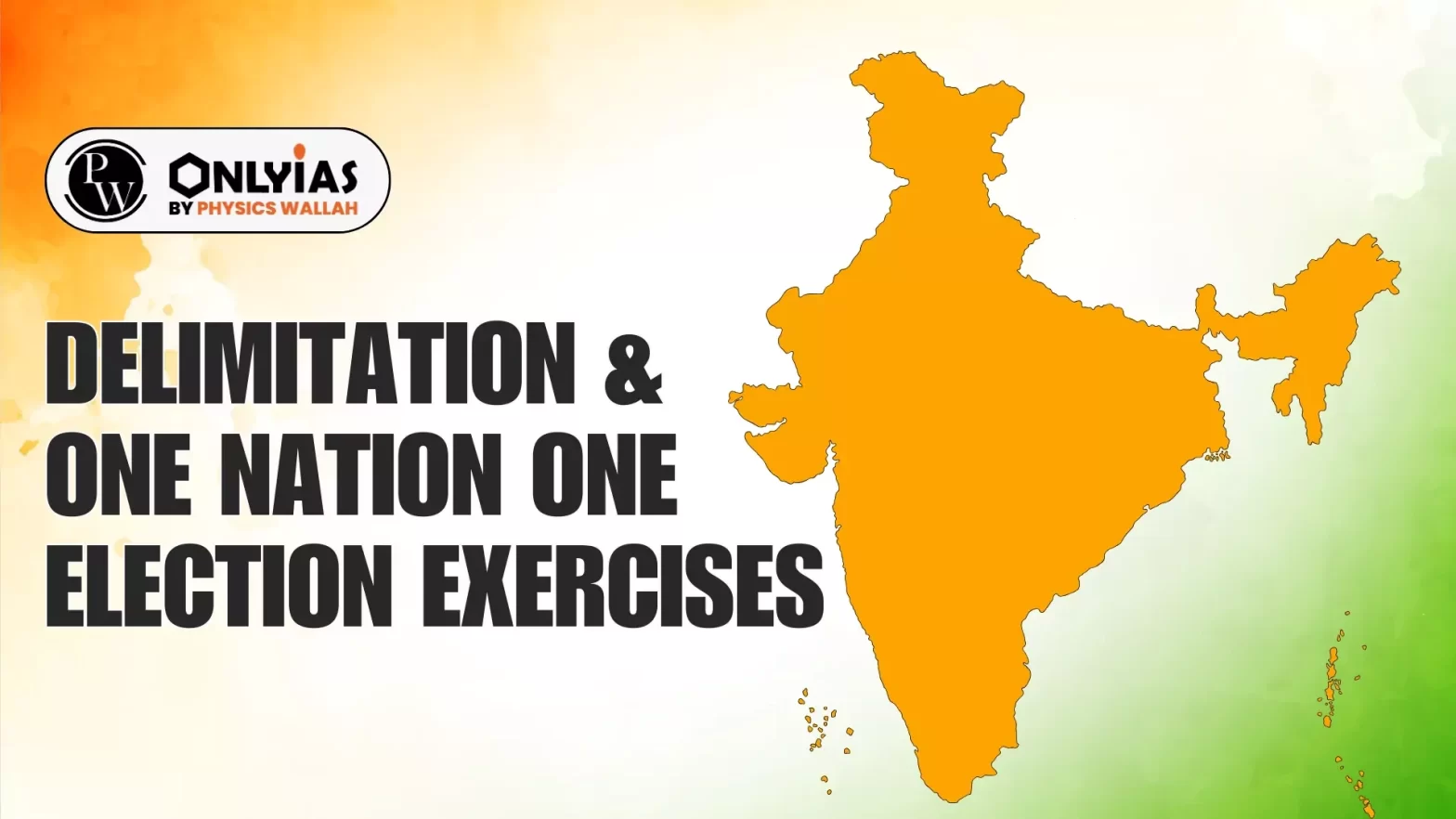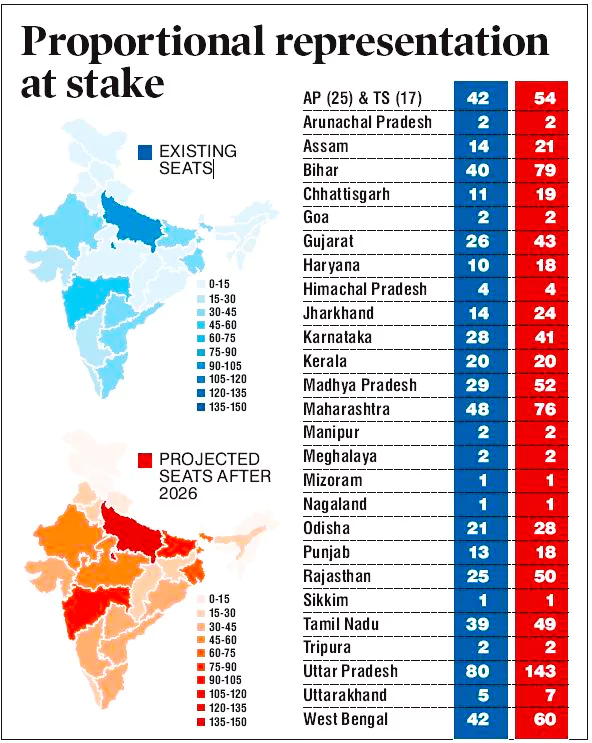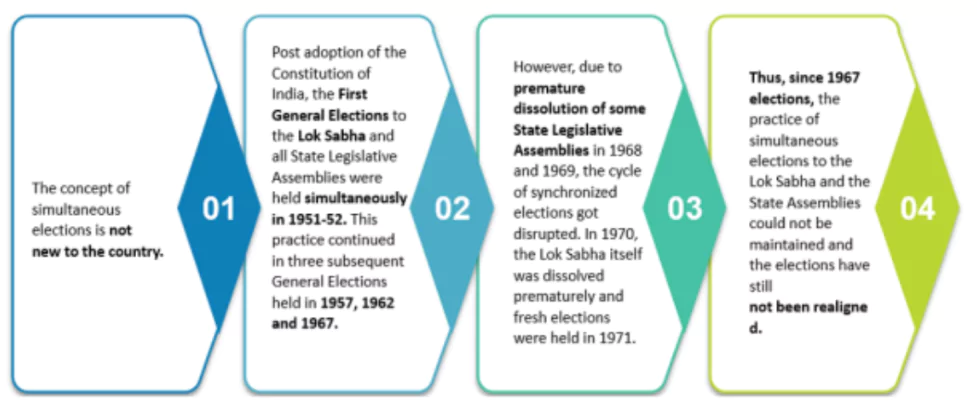Recently, Tamil Nadu Assembly ‘unanimously’ adopted two resolutions against the Union government’s ‘One Nation One Election’ proposal and the proposed delimitation after 2026.

Recently, Tamil Nadu Assembly ‘unanimously’ adopted two resolutions against the Union government’s ‘One Nation, One Election’ proposal and the proposed delimitation after 2026.

It is the process by which the limits or boundaries of a country’s territorial constituencies are rejigged to reflect changes in population.

Advantages of One Nation One Election |
Disadvantages of One Nation One Election |
|
|
The policy of One Nation One Election is not possible in the current framework of the constitution, so we require some essential amendments in the constitution to implement this policy:
| Must Read | |
| NCERT Notes For UPSC | UPSC Daily Current Affairs |
| UPSC Blogs | UPSC Daily Editorials |
| Daily Current Affairs Quiz | Daily Main Answer Writing |
| UPSC Mains Previous Year Papers | UPSC Test Series 2024 |
It is the process of redrawing the boundaries of electoral constituencies based on changes in population, ensuring fair representation and adherence to the principle of "One Vote One Value."
It occurs after every census, typically resulting in the formation of a Commission to oversee the redrawing of electoral boundaries.
It aims to ensure a fair division of geographical areas, equal population representation in constituencies, and the maintenance of the principle of "One Vote One Value."
It comprises a retired Supreme Court judge, the Chief Election Commissioner of India, and respective State Election Commissioners, appointed by the President of India.
No, the decisions of the Commission are final and cannot be questioned before any court, as this could delay elections indefinitely.
<div class="new-fform">
</div>